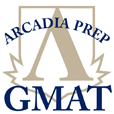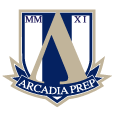Links
About Arcadia
LSAT Shorthand NotationArcadia Prep's GMAT CourseArcadia Prep's LSAT CourseArcadia Prep's SAT CourseArcadia Prep's GRE CourseThe Simply Brilliant GMAT AppAbout the MCATMCAT Physical and Biological SciencesAbout Arcadia Prep's MCAT CourseTerms of SaleTerms of UseAbout Arcadia Apps




LSAT Prep

Frathouse Fred: Last night I said only if I have another ... ...
If Fred's statements are true, which of the following can be concluded?
(A) Fred has never felt better than he does today.
(B) ...
(C) ...
(D) ...
(E) ...
*This question is included in Exercise Set 3: Intro to Only If / If And Only If
(A) Fred has never felt better than he does today.
(B) ...
(C) ...
(D) ...
(E) ...
*This question is included in Exercise Set 3: Intro to Only If / If And Only If
Replies to This Thread: 0 | ----
I don't understand, he feels great so we at least know he didn't have another drink
Replies to This Thread: 0 | ----
Damacho,
This sentence is confusing--and deliberately so.
To get the correct answer here, you have to be mechanical about translating the "only if" conditional.
We know that Fred will ONLY feel like hell if he has another drink.
We can diagram that:
FLH --> AD
And we know that Fred does not "feel like hell." In shorthand, we have:
~FLH
So then, can we conclude that Fred did not have another drink? The answer is NO. That would require us to commit the inverse error.
You may have mistranslated the conditional to read:
AD --> FLH
In this case, you would be correct--you could conclude that Fred did not have another drink. But remember, with "only if" conditionals, things often get flipped around.
A quick way to remember how to diagram "Only If" conditionals:
With "Only If" conditional statements, the part that comes directly after the "only if" is placed after the arrow (-->).
This sentence is confusing--and deliberately so.
To get the correct answer here, you have to be mechanical about translating the "only if" conditional.
We know that Fred will ONLY feel like hell if he has another drink.
We can diagram that:
FLH --> AD
And we know that Fred does not "feel like hell." In shorthand, we have:
~FLH
So then, can we conclude that Fred did not have another drink? The answer is NO. That would require us to commit the inverse error.
You may have mistranslated the conditional to read:
AD --> FLH
In this case, you would be correct--you could conclude that Fred did not have another drink. But remember, with "only if" conditionals, things often get flipped around.
A quick way to remember how to diagram "Only If" conditionals:
With "Only If" conditional statements, the part that comes directly after the "only if" is placed after the arrow (-->).
Replies to This Thread: 0 | ----
Still doesn't make sense. Because he feels great, and the ONLY thing that would cause the opposite (feeling like hell) is another drink, there is absolutely no way he had another drink.
Replies to This Thread: 0 | ----
Hey Shane,
I think you may be committing the inverse error.
Remember, we can ONLY conclude that Fred "doesn't feel like hell."
Using diagrams:
The fact that we have FLH → AD.
This DOES NOT allow us to say ~FLH → ~AD.
From the previous explanation:
We know that Fred will ONLY feel like hell if he has another drink.
We can diagram that:
FLH → AD
And we know that Fred does not "feel like hell." In shorthand, we have:
~FLH
So then, can we conclude that Fred did NOT have another drink ("~AD")?
The answer is NO.
I think you may be committing the inverse error.
Remember, we can ONLY conclude that Fred "doesn't feel like hell."
Using diagrams:
The fact that we have FLH → AD.
This DOES NOT allow us to say ~FLH → ~AD.
From the previous explanation:
We know that Fred will ONLY feel like hell if he has another drink.
We can diagram that:
FLH → AD
And we know that Fred does not "feel like hell." In shorthand, we have:
~FLH
So then, can we conclude that Fred did NOT have another drink ("~AD")?
The answer is NO.
Replies to This Thread: 0 | ----
So I believe I understand, though we do know he did not have another drink, there are other ways in which he could possibly feel like hell. Getting another drink only ensured that he will feel like hell, not getting one does not ensure that he won't feel like hell for some other reason. Correct?
Replies to This Thread: 1 | ----
100% correct, Shane.
Reply 1 of 1
Replies to This Thread: 0 | ----
Posted: 04/14/2012 05:38
Replies to This Thread: 0 | ----
So FLH --> AD = ~AD-->~FLH
Because when negating it has to be flipped and reversed....so if it's not Flipped as well as reversed since stated then the consequent cannot be correct, right?
Because when negating it has to be flipped and reversed....so if it's not Flipped as well as reversed since stated then the consequent cannot be correct, right?
Replies to This Thread: 1 | ----
If E is correct, then revising the statement Fred made to "if I have another drink, I will only feel like hell tomorrow" should not change its meaning yet if interpreted just slightly differently it would mean "only if I have another drink will I feel like hell tomorrow" meaning something completely different---this kind of inversion is completely nonsensical and obsolete, and If it is even certain to be true surely is a question of the understanding of the English language rather than any logical skill...
Jake, this portion of the LSAT is testing our ability to understand the English language and translate it into logic. If it's only logic, you'd be applying to a graduate program in computer science, not law school.
Oh, it's just that I'm only 15 right now so I really don't know a ton about English and its the different sentence structures (or what grad school I'm going to for that matter); and this portion is called "logical reasoning", so I accordingly presumed that the information would be presented in a manner which included the least amount of confusion possible; that way the test taker's efforts could be focused more on logic than deciphering the complex meanings of every minute structural detail within each sentence of the passages. However, if it weren't tedious and hard then anyone could get into law school I suppose. And no one wants a bunch of Italian lawyers...
Reply 1 of 1
Replies to This Thread: 0 | ----
Posted: 02/13/2012 15:11
Replies to This Thread: 0 | ----
Jake, thanks for introducing yourself. I assume you are interested in law school, maybe 6-7 years from now, and you are checking out Arcadia's free app and the sample tests. You are welcome to do that. Please first read the information (press the i button in the upper left corner of the app) and study the Shorthand/Notation, which introduces you to the most commonly asked question types. That way, you will be able to ask questions about solving the problems, instead of questioning the way the problems are written. The problems are from real LSAT tests, so there is nothing you or we can do about them.
Also, don't forget to go to http://itunes.apple.com/us/app/lsat-prep/id420926539 and rate us 5 or 4 stars. It is appreciated and it will help us keep the service going.
Also, don't forget to go to http://itunes.apple.com/us/app/lsat-prep/id420926539 and rate us 5 or 4 stars. It is appreciated and it will help us keep the service going.
Replies to This Thread: 0 | ----
So is there any possibility that Fred could have had another drink and not felt like hell? If not then couldn't we conclude that he did not have another drink. From his statement, it sound like if he had another drink, he would definitely feel like hell, so by him not feeling like hell how could he possibly have had another drink?

Replies to This Thread: 0 | ----
Fred could have done something to counter the effect of another drink so that he does not feel like hell. Maybe he can get enough sleep, or take a magic pill.
To repeat what had been explained in previous posts, in problems like this, it helps to diagram it. If the problem has statements using "only if", flip the diagram. Hence, it is not +1D → FLH, but FLH → +1D.
To repeat what had been explained in previous posts, in problems like this, it helps to diagram it. If the problem has statements using "only if", flip the diagram. Hence, it is not +1D → FLH, but FLH → +1D.

Replies to This Thread: 0 | ----
Here is another way to look at it. Rephrase.
"If I feel like hell today, I must have had another drink last night."
"I feel great today." It doesn't follow that I did not have another drink last night. I could have had another drink and slept longer; or I could have had a better tolerance to alcohol last night.
I think we have enough discussion of this topic for now.
"If I feel like hell today, I must have had another drink last night."
"I feel great today." It doesn't follow that I did not have another drink last night. I could have had another drink and slept longer; or I could have had a better tolerance to alcohol last night.
I think we have enough discussion of this topic for now.
Replies to This Thread: 0 | ----
Yep! 100% agree now. Thanks, that cleared it up pretty quickly. I'm just thinking of these problems too literally and not logically....... If that makes sense?

Replies to This Thread: 0 | ----
Jimmy, glad you got it now. Don't forget to support us by putting in a good word in the App Store.
Replies to This Thread: 0 | ----
I don't understand how E is the answer for this question. Could you please explain why couldn't it be inferred that he had a drink? Since he felt well the next day.

Replies to This Thread: 0 | ----
Lewis, please re-read the discussion thread on this problem. It has been discussed in details.






